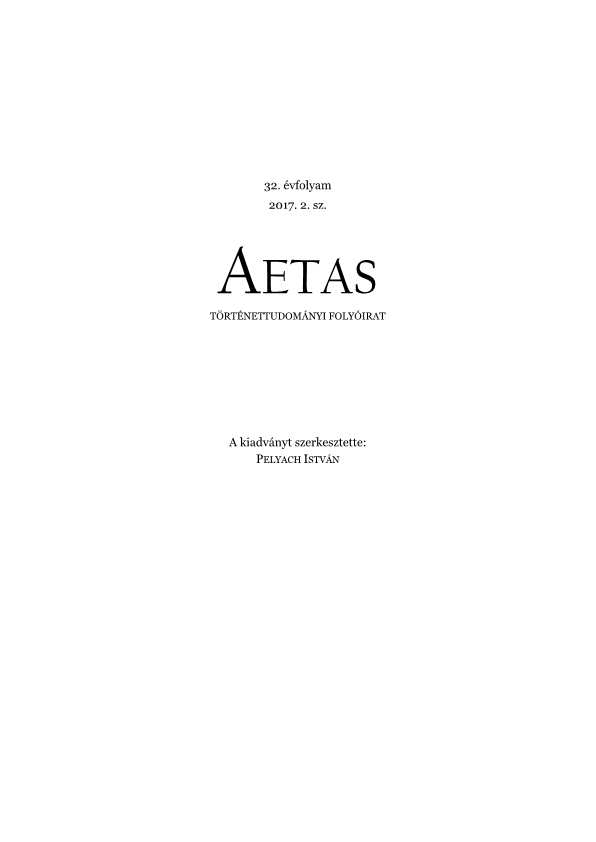Kazinczy Lajos élete 1848 előtt
Lajos Kazinczy’s Life before 1848
Author(s): József SolymosiSubject(s): 19th Century
Published by: AETAS Könyv- és Lapkiadó Egyesület
Summary/Abstract: Lajos Kazinczy was one of the leading military officers in the 1848–1849 Hungarian war of independence who rose to a leadership position during the revolution, after serving in the army for a long time, and about whose pre-1848 life and military career we know very little. The paper attempts to fill this gap. Lajos Kazinczy was born at Széphalom on 20 October 1820 as the youngest child of Ferenc Kazinczy (1759–1831), the neologist and the known and renowned writer of the era, and Zsófia Török (1780–1842). By the time, the Calvinist noble family from Upper Hungary had been reduced to poverty, and the Kazinczy parents were struggling to provide for the upbringing of their seven children. After studying at Széphalom, Sárospatak and Sátoraljaújhely, Lajos Kazinczy was admitted to the school of military engineering of Tulln at the age of 15, through the intervention of Count József Teleki (1790–1855), the treasurer of the Reformed College of Sárospatak. He studied there between 1835 and 1839, then served as a hussar officer in the 9th (Miklós) hussar regiment. It was after a long delay that he was promoted to 2nd lieutenant in the autumn of 1841. In his letters from 1840–41 written to his mother he discusses in detail his lifestyle and his yearning for becoming a lieutenant. It is striking how ambitious and aspiring a cadet Lajos Kazinczy was. For him, being recognized by his fellow officers was very important, just like being the life and soul of the party. As a young man, he was fond of having a good time, going to balls and enjoying the company of women. He was a good dancer, his companions liked his jolly manner, while he was reliable in service. However, as a result of his abovementioned activities, his active participation in social life, he was constantly in financial difficulties, and it seems that gambling was not alien to his nature either. Kazinczy quit the army after more than eleven years of service, not long after his promotion to first lieutenant, when he served as an adjutant to a vice-marshal. His position could hardly explain why he left. In the paper, we have managed to clarify the circumstances of his resignation, which was not planned, and was a result of an unfortunate case of forgery. The letters discussing the circumstances of why he left the army are published here for the first time, in the appendix to the paper in Hungarian translation.
Journal: AETAS - Történettudományi folyóirat
- Issue Year: 2017
- Issue No: 2
- Page Range: 37-54
- Page Count: 18
- Language: Hungarian

